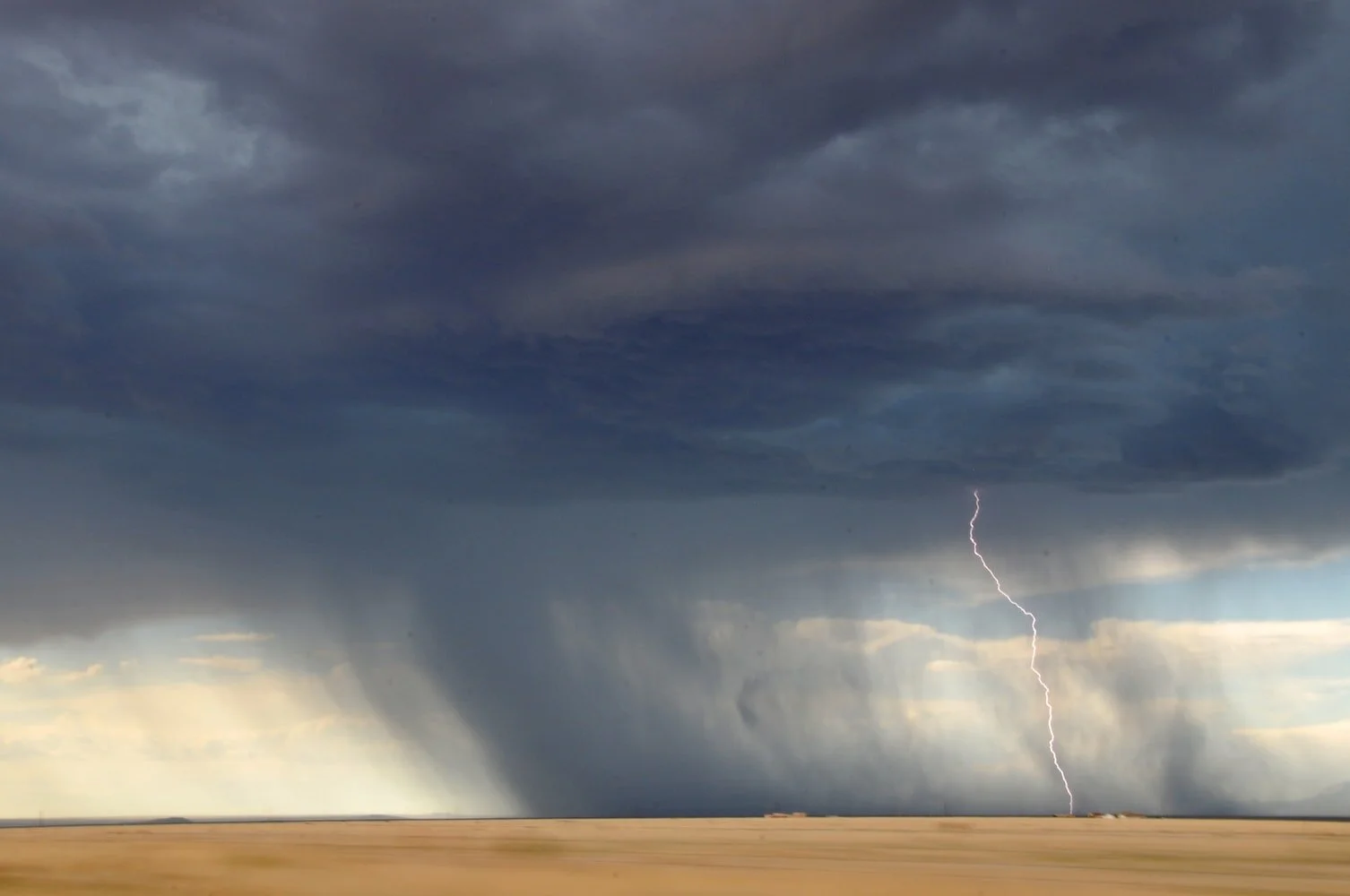How to fight a control idol in building a venture
— by Leah Davidson
In venturing into entrepreneurship, it is easy to get sucked into the idol of control (“a desire to have everything go according to my plans”), what Tim Keller labels in Counterfeit Gods as one of the four root idols.
As entrepreneurs, the desire to be in control is often why we set out on this trajectory. We pitch to investors, customers, and the press that preparation/experience, a great team and idea, and our own skills and competence as a leader will differentiate our venture, only to then feel misled when funding rounds collapse, contracts fall through, and key employees or co-founders leave.
Here are some lessons learned from traveling to 20+ countries on the path to building an ed-tech venture:
1. Embrace the uncertainty as a chance to fully rely on God
Everyday life is uncertain, but often those uncertainties are hidden behind a seemingly stable job, a bank account and retirement plan that can weather tumultuous financial markets, and a resume with enough accolades and brand-names to presumably land high-paying jobs, even during global pandemics. Leaving friends, family, and income behind to pursue entrepreneurship abroad forced me to acknowledge that success, funding, and security are never guaranteed, but that no matter what happens, God will never forsake me.
Do not be anxious about anything, but in everything by prayer and supplication with thanksgiving let your requests be made known to God. And the peace of God, which surpasses all understanding, will guard your hearts and your minds in Christ Jesus.
Philippians 4:6-7
2. See every blessing as a gift
By giving up my own control over the ability to provide for myself, I saw God open up incredible doors, like a chance to live with a Chilean host family and build a relationship teaching English to their three-year-old daughter, which helped combat loneliness, and accelerator programs that came through with funding when we were struggling to pay our tech team’s monthly salaries. More importantly, God provided deeper spiritual blessings of peace, comfort, and joy in the midst of the struggle.
Every good and perfect gift is from above, coming down from the Father of the heavenly lights, who does not change like shifting shadows
James 1:17
3. Know when to stop and how to let go
Perseverance in the face of adversity is admirable, especially when it comes to living for God, but too much resoluteness in a certain direction can blind you to what God is actually saying. When we faced rejection after rejection during the fundraising process, I needed to face the reality that maybe I would have to accept another job and give up the full-time pursuit of entrepreneurship.
In contemplating the options, I had to surrender my own desires and ask myself a few questions:
Am I unwilling to consider alternatives even when all the evidence points to the need for a pivot?
Would I hurt or risk endangering the people I love to achieve my goals?
Where is my pride and ego in my vision for the project’s success?
Would I still persevere if I received no financial benefit and no earthly recognition?
Am I falling into the sunk cost fallacy of believing that more perseverance will necessarily lead to greater rewards?
I ultimately realized that God may be leading me in new directions and I chose to continue pursuing grant opportunities, while searching for more of a home-base, where I could build church community.
Will you do whatever God asks of you, even if it means sacrificing your son (Abraham), losing your possessions (Job), dying (Stephen), and never reaching the Promised Land (Moses)? What does it mean to truly surrender? Be prayerful and allow God to open and close the right doors.
“For my thoughts are not your thoughts, neither are your ways my ways,” declares the Lord. As the heavens are higher than the earth, so are my ways higher than your ways and my thoughts than your thoughts.”
Isaiah 55:8-9
4. Make sure to stay humble
Entrepreneurs are often trying to solve big problems, so it is easy to get caught up in wanting to be “the one” to make the change and forget that God is ultimately in control of restoring the world. Humility allows us to view our time and talents under a lens of stewardship and to allow God to mould us and use us as He wills, with the understanding that we are not guaranteed any earthly outcomes and may never see the fruits of our labor on this Earth.
I planted the seed, Apollos watered it, but God made it grow. So neither he who plants nor he who waters is anything, but only God, who makes things grow. The man who plants and the man who waters have one purpose, and each will be rewarded according to his own labor.
1 Corinthians 3:6-8
Related articles
What is the added value of being a Christian in times of crises? We live in the same world, face the same circumstances, and experience the same crises?
We cannot find stability in the changing circumstances or in trying to control them. The characteristic of our time, and I think of all times, is that we cannot make or control this world.
As a follower of Jesus, my go-to place for inspiration is the Bible, which says, “Remember the Lord your God, for it is he who gives you the ability to produce wealth.” (Deuteronomy 8:18). Clearly, wealth creation is a gift of God, not a gift of capitalism.
As entrepreneurs, the desire to be in control is often why we set out on this trajectory.
One of my fondest memories as a little boy was going to Klang (a town in Malaysia where my parents are from) every weekend and eating bak kut teh (pork rib soup) with my parents at a famous local joint.
“Just because I’m big of heart, doesn’t mean I am slow of mind or weak of hand.” That’s the somewhat offhand comment Patricia Asp made to me in a recent 10 Talent LeaderTalk Podcast interview (ForbesBooksRadio.com/10x) when I asked her about how she reconciled her Christian faith with the demands of senior leadership.
The past 100 years has seen one crisis after another; [….] You’d think we would recognize that crisis is a regular occurrence; but, we don’t.
Two weeks into COVID-19, when other people were losing jobs and schools were shutting their doors to complete the school year online, God spoke to me about returning to the marketplace.
For the first time since the threat of nuclear annihilation hung over the UK in the 60s, millions of us are worried about dying, or worried about someone else dying. Suddenly, the question ‘if you were to die tonight, where would you go?’ has a fresh pertinence.
Survival is a funny thing. Survival can feel good. The adrenaline rush which comes from dodging a train is a good one. But if we get into a habit of just avoiding bad outcomes, we can easily start redefining success as “we’re good at avoiding bad outcomes.”
Many organizations (businesses, nonprofits, schools, churches) are struggling mightily to survive the blizzard of viral spread and rolling shutdowns. Many will not survive the arduous winter as social and economic life re-emerges in fits and starts, lacking the assets or the positioning to advance their mission under new constraints.
Recently, Chuck Bently and his team at Christian Economic Forum had Henry Kaestner on their podcast to talk COVID-19, generosity in the midst of crisis, and alternative recovery scenarios.
“We are all in same storm, just with different boats”. Yes, we are indeed and it is that way through any crisis or situation. There are those who always have bigger, sturdier, and stronger boats and there are those who are in the storm with maybe nothing more than a lifeboat.
I never saw it coming. I started my business part-time in January, 2000, and I completed my MBA in September of the same year. I purchased my second new construction home. Things were going well, and I could not have been happier.
If you are not a mentor and would like to step into the opportunity to pour out your life into the life of a future leader, Leadership Edge offers an online, interactive training that will provide a framework for authentic, Life-On-Life mentoring.
“It is up to us how we move through this crisis and come out of the other side. ……….When things come apart, there is always the opportunity to put them back together differently.” — Scottish Government
Although pain is inevitable, misery is optional. The same calamity can produce positive change in one person and cause caustic bitterness in another. Whether pain's life-shaping power makes us better or bitter depends on what we believe about God.
These are unprecedented times for all of us in business. It doesn’t matter if you are an employer or employee. The result of this whiplash is to cut expenses and to cut them fast. The biggest expense item is payroll. Cut people. The hardest thing you’ll ever do in business.
We’re living in truly turbulent times. As a leader, what will guide your actions in the days ahead? How will you calm, encourage and inspire those you lead? You can help people gain fresh perspectives by using analogies and metaphors. Your life story holds experiences that can serve as solid reference points for your leadership message of hope and empowerment.
Between 250 and 270 A.D. a terrible plague, believed to be measles or smallpox, devastated the Roman Empire. At the height of what came to be known as the Plague of Cyprian, after the bishop St. Cyprian who chronicled what was happening, 5,000 people died every day in Rome alone.
This is what we do. We create. We can’t help ourselves. We’re hardwired, hand-built, wonderfully created to create. It’s because we’re fashioned in the image of the Creator. The One who breathes new life into dust, speaks cosmos into existence, and never ceases in making all things new.
He created. He creates. We’re created. We create.
At a macro-level we need to have a national plan to get businesses and local economies back open as soon as possible in a safe and responsible way, and in the mean-time we need to find creative and aggressive ways to patronize these businesses and keep cash flowing. Lives depend upon it. Legislative and policy maneuvers can serve as temporary bandages, but only real-world commerce and trade will enable economies to heal.
We need a plan to "Black Start" the economy that we have intentionally shut down. Some day in the coming months, lights will be turned back on, but what will still remain is up to the aggressive actions we take now. "Black start" is a term used in the energy industry. It is necessary to maintain resources that are able to start when the rest of the grid goes dark, which can then bring the rest of the grid’s resources back online.
None of us, including experienced business people, have led a company in such a time as this. For over 20 years, Charlie Paparelli has been an professional angel investor and entrepreneur, co-founding 12 startups and investing in twenty-three. Read his take on where we go from here…
Jerry Colangelo is a legend in the world of professional sports, but that isn’t how he wants to be remembered. Instead, Jerry hopes that when people think of him they will say, “He cared.”
In moments of crises, the core of who you are is fully exposed and the deeply embedded values of your culture take over. For Vermeer, 70 years of a biblically-based culture turned into action immediately after a tornado struck in 2018. Since then, they’ve celebrated a year of record sales and growth across their business. This article was one of CEF’s 2019 White Papers.
Norm Miller, founder of I Am Second Leadership, told TwoTen about how his desires became less about him and more about Him. To date, the “I Am Second” web site has been visited over ten million times in over 56 countries. More of that journey is included in this blog post ...
For over 20 years, Charlie Paparelli has been an professional angel investor and entrepreneur, co-founding 12 startups and investing in 23. On a daily basis, he mentors 10 startup founders and advises many more. Read more about his 11 thoughts on how to see failure as an entrepreneur.a
Have you ever felt like you were under attack at work? Catherine Gates from Workmatters.org shares 10 Scriptures to help when you feel all alone at work, or if you just feel overwhelmed by the demands and crazy deadlines coming at you.
——
[ Photo by Bailey Heedick on Unsplash ]






























Even though we all deal with craziness when we must, most of the time we easily settle into our current environment, whatever it may be.